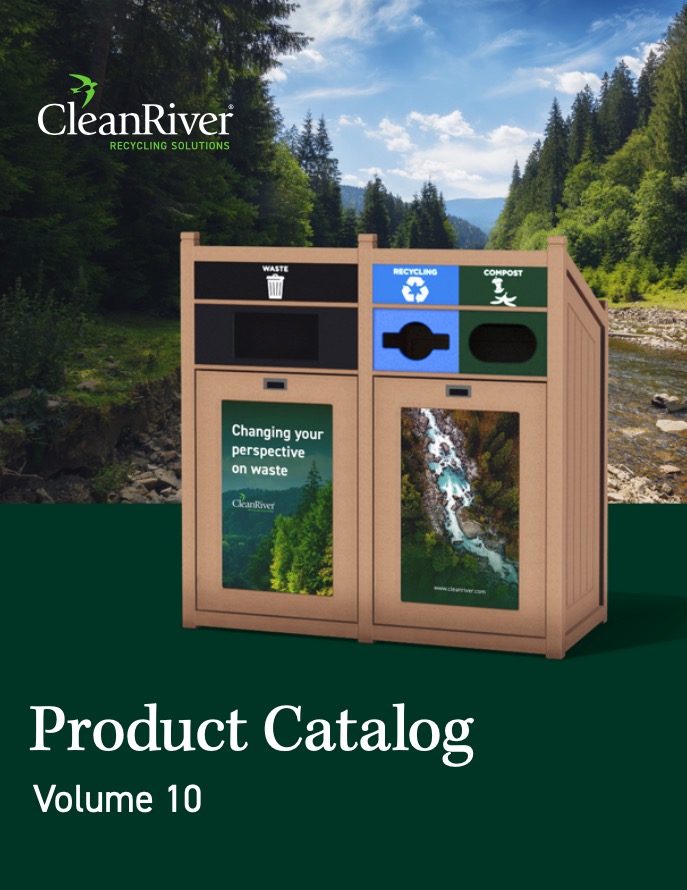Share
As businesses around the world increasingly focus on Environmental, Social, and Governance (ESG) principles, incorporating sustainable practices into corporate strategies has become paramount.
Among the various ESG components, recycling and waste diversion play a significant role in addressing environmental and social objectives.
In this article, we will explore how recycling can aid in reducing waste and meeting ESG goals, emphasizing its alignment with ESG principles.
ESG-Aligned Recycling Practices
To effectively contribute to ESG goals, businesses must integrate recycling practices that directly align with Environmental, Social, and Governance commitments. These practices should be designed to maximize environmental benefits and uphold social and ethical responsibilities:
Resource Efficiency: Implement recycling programs that focus on conserving resources, such as reducing the consumption of raw materials, energy, and water. This aligns with the ‘E’ in ESG and reflects responsible environmental stewardship.
Emissions Reduction: Recycling can significantly reduce greenhouse gas emissions associated with manufacturing virgin materials. By incorporating recycling into your supply chain, you help combat climate change, which is a crucial aspect of ESG.
Ethical Sourcing: Choose suppliers that prioritize sustainable and ethical sourcing of recycled materials. This promotes responsible governance practices and ensures that your recycling efforts extend throughout the supply chain.
Waste Diversion Strategies
Waste diversion is a key strategy in the pursuit of ESG goals. It involves implementing practices and processes that redirect materials away from landfills and toward recycling and other productive uses:
Circular Economy Adoption: Embrace a circular economy model by designing products and packaging for reuse and recycling. This approach minimizes waste and supports sustainability and governance principles within ESG.
Extended Producer Responsibility: Assume responsibility for the lifecycle of your products, including their disposal. Establish take-back and recycling programs to ensure proper disposal and recycling of your products, thereby contributing to social and governance objectives.
Zero Waste Initiatives: Set ambitious goals for reducing waste generation within your operations, aiming for zero waste. This commitment demonstrates your dedication to ESG’s environmental and social pillars.
Resource Conservation Impact
Recycling profoundly impacts resource conservation, which aligns directly with ESG goals. By emphasizing the importance of responsible resource management, you support sustainability and governance objectives:
Reduced Resource Depletion: Recycling reduces the need to extract and process raw materials, conserves natural resources, and lowers the environmental impact associated with resource extraction.
Sustainable Practices: Incorporating recycling into your supply chain encourages responsible sourcing and the adoption of sustainable practices, demonstrating your commitment to ESG governance principles.
Lower Environmental Footprint: Recycling significantly reduces the carbon footprint associated with resource extraction, processing, and transportation, aligning with the ‘E’ in ESG by promoting environmental sustainability.
Community and Employee Engagement
Recycling initiatives can foster community and employee engagement, which aligns with the social responsibility aspects of ESG:
Community Outreach: Engage with local communities through recycling programs, environmental education initiatives, and partnerships with non-profit organizations. This demonstrates your company’s commitment to social responsibility and positively impacts your reputation.
Employee Participation: Encourage employees to participate actively in recycling efforts within and outside the workplace. Engaged and motivated employees contribute to a positive corporate culture aligned with ESG principles.
Volunteer Opportunities: Provide opportunities for employees to volunteer in environmental and community-focused activities, strengthening their connection to social and governance aspects of ESG.
ESG Reporting Integration
To demonstrate a holistic commitment to environmental and social sustainability, integrate recycling and waste diversion metrics into your ESG reporting. This integration provides a comprehensive view of your company’s ESG efforts:
Transparency: Include recycling and waste diversion data in your ESG reports to showcase your dedication to sustainable practices. Transparency in reporting is essential for building trust among stakeholders.
KPIs: Define key performance indicators (KPIs) related to recycling and waste diversion, such as the percentage of materials recycled or the amount of waste diverted from landfills. These KPIs demonstrate your progress toward ESG goals.
Stakeholder Engagement: Engage with stakeholders, including investors, customers, and employees, to discuss your recycling and waste diversion initiatives. Their input and feedback can provide valuable insights for ongoing improvement.
Conclusion
Recycling and waste diversion are powerful tools for businesses aiming to meet ESG goals. By implementing these strategies outlined in the blog, companies can make substantial contributions to environmental and social sustainability.
Incorporating recycling into your corporate strategy benefits the environment, enhances your reputation, attracts socially conscious consumers and investors, and demonstrates a commitment to responsible governance.
By prioritizing recycling and waste diversion, businesses can play a pivotal role in creating a more sustainable and socially responsible future, ultimately aligning with the core principles of ESG.

